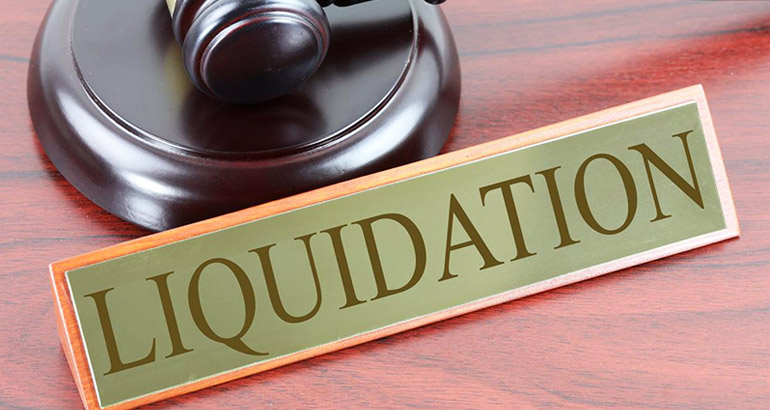Little Known Questions About Company Liquidation.
Little Known Questions About Company Liquidation.
Blog Article
Some Known Questions About Company Liquidation.
Table of ContentsCompany Liquidation Things To Know Before You Get ThisIndicators on Company Liquidation You Need To KnowEverything about Company LiquidationThings about Company LiquidationWhat Does Company Liquidation Mean?
A liquidator is particularly assigned to look after the ending up of a business's affairs in order for it to be folded commonly when the firm is going insolvent. The liquidator is a neutral 3rd party who supervises the sale of company properties in order to repay any outstanding financial debts.Their role includes, however is not restricted to: Objective Overseer: A liquidator is tasked with serving as a neutral 3rd party to look after the entire company liquidation process. Create Declaration of Affairs: Liquidators should create an extensive declaration of events record. This document is distributed to creditors, describing the existing financial standing of the service at the time of its liquidation.
After the liquidation of a company, its presence is removed from Business Residence and it discontinues to be a lawful entity. If supervisors browsed the procedure uncreative, there would certainly be no fines or personal responsibility for firm financial obligations expected. Currently, with a tidy slate, directors can discover brand-new organization chances, though specialist consultation is a good idea.
The Ultimate Guide To Company Liquidation
As an example, if greater than 90% of all business shareholders concur, liquidation can happen on brief notice within seven days, the minimal statutory notification for financial institutions. Generally, the bigger the liquidation and the even more possessions and resources the business has, the longer the process will take. 'Do I have to pay to liquidate my company?', the solution will depend on whether or not your business has any assets leftover when selling off.

We comprehend that no two companies are the exact same, which is why we will take the time to obtain to recognize your business so we can recommend the most effective strategy for you. We only operate in your benefits, so you can be entirely certain in the service we give.
Some Ideas on Company Liquidation You Should Know
In the UK, there is an established process to shutting down or reorganizing a limited firm, whether it is solvent or insolvent. This procedure is understood as liquidation and can only be taken care of by an accredited insolvency practitioner (IP) based on the Insolvency Act 1986. There are 4 main kinds of company liquidation process: Financial institutions' Volunteer Liquidation (CVL); Obligatory liquidation; Management; and Members' Volunteer Liquidation (MVL).

In these situations, it is essential that the firm ceases trading; if business proceeds to trade, the directors can be held personally accountable and it might cause the bankruptcy specialist reporting wrongful trading, referred to as misfeasance, which may bring about lawsuit. The directors assign an insolvency expert and once this has actually been agreed and verified, there is a conference with the shareholders.
The supervisors are no longer included in what occurs, consisting of the sale of the business's assets. If the directors desire any of the properties, they can my latest blog post alert the IP.
Get This Report about Company Liquidation
The major distinction is that the business's creditors used to the court for an ending up order which requires the insolvent firm right into a liquidation process. Creditors take this activity as a last resort due to the fact that they haven't obtained repayment through various other forms of arrangement. The court selects an insolvency professional, also recognized as an official receiver, to perform the obligatory company liquidation procedure.
This kind of business liquidation is not volunteer and directors' conduct is reported to the UK's Assistant of State once the liquidation process has actually been completed. As a result, any director that falls short to work together with the IP or has been associated with director transgression, or a deceptive act, might result in severe repercussions (Company Liquidation).
It is made use of as a method to secure the company from any lawsuit by its financial institutions. The directors of the business accept make normal payments to resolve their financial debts over a time period. The selected administrator manages the volunteer management process, and receives the repayments which they after that disperse to financial institutions according to the concurred quantities.
Some Ideas on Company Liquidation You Should Know
This provides the company with time to create a strategy going ahead to rescue the company and stay clear of liquidation. Nonetheless, now, directors hand control of the firm over to the assigned manager. If a firm is solvent however the directors and investors wish to shut business, a Members Volunteer Liquidation is the right choice.
The company liquidation process is taken care of by a Full Report liquidator selected by the directors and investors of the company and they must click over here authorize a declaration that there are no financial institutions staying. The liquidation process for an MVL is comparable to that of a CVL in that properties are understood yet the earnings are distributed to the supervisors and the shareholders of the company after the liquidator's costs have actually been paid.
Report this page